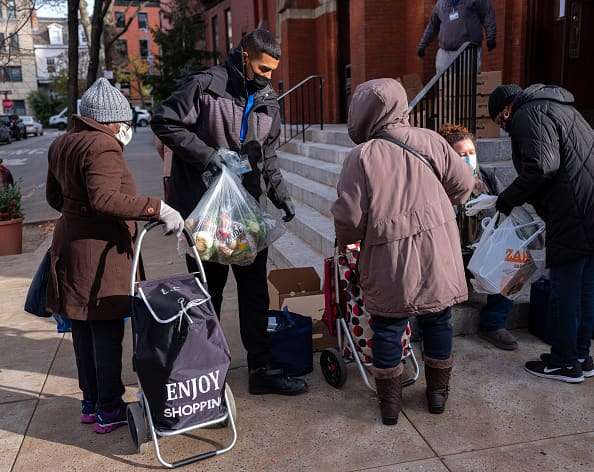
People line up to receive free food donations Nov. 19, 2020 outside the St. Charles Borromeo Church in New York City.
Robert Nickelsberg | Getty Images News | Getty Images
Nearly 11 million Americans will lose unemployment benefits in about two months without additional Covid relief, according to a new analysis.
That so-called benefits cliff is larger than the one workers faced in December when Congress was debating the contours of a $900 billion pandemic aid measure, according to research published Wednesday by The Century Foundation, a left-leaning think tank.
However, Democrats appear poised to pass a $1.9 trillion relief package proposed last month by President Joe Biden within a few weeks, which would avert another cliff.
Unemployment benefits cliff
Biden stimulus plan
Biden‘s $1.9 trillion pandemic relief proposal would extend and enhance jobless benefits. Aid would last until Aug. 29 and include a $400-a-week boost to benefits (up from the current $300), according to a proposal issued Monday by Democrats in the House.
Democrats aim to push the legislation through without Republican votes using a special budget measure called reconciliation,
“We’re not facing this kind of tortured, stop-and-start negotiation we faced in the fall,” Stettner said. “There is a sense of urgency from the Biden administration to get this done.”
However, some opponents believe Biden’s stimulus plan could ultimately harm the U.S. economy by offering people an incentive to remain out of work.
“Increasing weekly unemployment benefits sounds compassionate, but perversely, doing so has proven to lead to higher unemployment rates,” said Matthew Dickerson, a budget analyst at conservative think tank The Heritage Foundation.
Economic studies didn’t find evidence of such a disincentive effect during the spring and summer, when Washington paid a $600 weekly unemployment supplement to workers but jobs were scarce. It’s unclear how extra benefits would affect workers in the current economy, according to economists.


